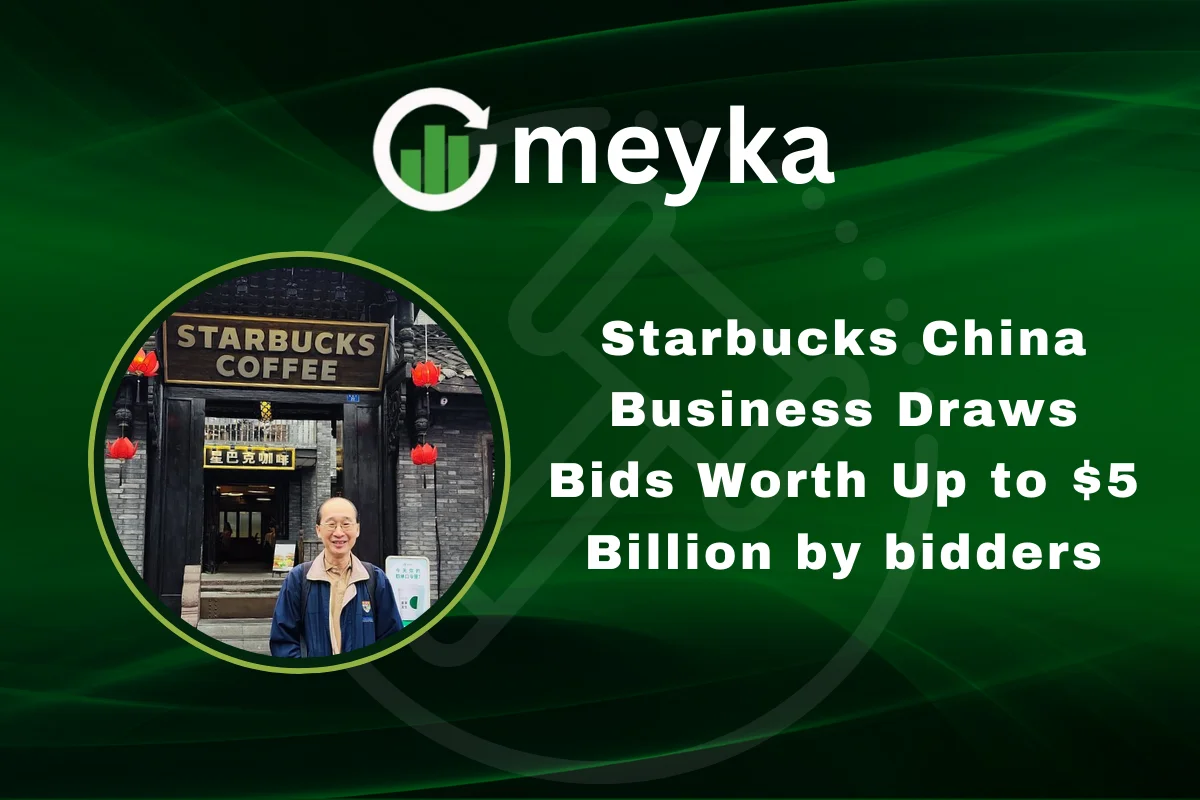Starbucks China Business Draws Bids Worth Up to $5 Billion
Starbucks, the world’s largest coffeehouse chain, is once again at the center of global attention as its China business attracts investor bids worth up to $5 billion. This significant development highlights both the strength of the brand and the growing importance of the Chinese market in the international coffee industry.
The Rising Value of Starbucks in China

China has emerged as one of Starbucks’ most vital growth markets outside of the United States. The company has already established thousands of stores in major cities such as Beijing, Shanghai, Guangzhou, and Shenzhen, positioning itself as a household name. With rapid urbanization, a growing middle class, and increasing disposable incomes, the demand for premium coffee continues to climb.
Bids reaching $5 billion underscore how much investors value Starbucks’ China operations. This valuation reflects confidence in the company’s ability to expand further, despite intense competition from local coffee startups and global rivals. While local players such as Luckin Coffee are aggressively increasing their market share, Starbucks retains its stronghold by focusing on brand experience, product innovation, and digital engagement.
Why Investors Are Interested in Starbucks China
The attention from global investors is no surprise. Starbucks has shown remarkable resilience in adapting to the stock market challenges while maintaining consistent revenue growth in China. The Chinese consumer base is shifting rapidly toward premium experiences, and Starbucks is uniquely positioned to capture that growth.
Another factor fueling investor interest is Starbucks’ commitment to innovation. From AI-driven personalization to advanced mobile ordering platforms, the brand is constantly evolving. Integrating AI stocks and digital research into its supply chain and consumer engagement strategies enhances customer loyalty and operational efficiency.
Investors recognize that Starbucks is not just a traditional coffee chain. It represents a blend of technology, lifestyle, and community. This multi-layered strategy makes its China operations highly appealing for long-term returns.
Starbucks’ Expansion Strategy in China
Starbucks has consistently stated that China is its second-largest market after the United States, and it aims to operate thousands more stores across the country in the next decade. The company is opening new outlets at a remarkable pace, targeting both major urban hubs and emerging cities.
The expansion is not only about increasing store count but also about creating experiences. The coffee giant has invested heavily in flagship stores, such as the Starbucks Reserve Roastery in Shanghai, one of the largest coffeehouses in the world. These iconic outlets go beyond selling beverages; they provide immersive brand experiences that strengthen Starbucks’ premium positioning.
In addition, the coffee giant has partnered with local tech giants such as Alibaba to integrate digital payments, online delivery, and customer engagement tools. This synergy with China’s tech ecosystem gives the company a competitive edge over rivals.
Financial Performance and Market Outlook
The financial outlook for Starbucks in China remains strong. Despite temporary slowdowns caused by global events, the brand has bounced back quickly, demonstrating resilience in the face of challenges. Investors view Starbucks as a stable and promising asset in a volatile stock market environment.
With a consistent track record of growth, Starbucks continues to attract investor confidence. The latest bids reflect optimism that the company can achieve even greater milestones in the Chinese market. Strong brand recognition, premium offerings, and a loyal customer base combine to create a highly valuable business segment.
Competition in the Chinese Coffee Market
While Starbucks dominates the premium coffee space, competition is intensifying. Luckin Coffee, for example, has adopted an aggressive pricing strategy and rapid expansion model, appealing to younger, tech-savvy consumers. Other international chains and boutique coffee brands are also seeking a share of the growing market.
However, the coffee giant maintains its edge through a focus on customer experience, innovation, and sustainability. The company has pledged to source ethically produced coffee, reduce carbon emissions, and invest in greener operations. These commitments resonate strongly with environmentally conscious Chinese consumers, giving coffeehouse a unique advantage.
Technology and AI in Starbucks’ Growth
Starbucks’ use of technology is another key reason behind its strong performance in China. The company leverages AI-driven analytics to study consumer preferences and optimize product offerings. Mobile apps, loyalty programs, and personalized promotions further enhance customer engagement.
Investors see this integration of technology as a sign that the coffee giant is future-proofing its business. By combining traditional coffee culture with modern digital tools, the company is creating a model that other global chains are eager to replicate.
The Bigger Picture: Global Implications
The $5 billion valuation of Starbucks China has broader implications for the global coffee industry and the stock market. It reflects the growing importance of Asia in shaping consumer trends. As global investors compete for a piece of Starbucks’ China business, it also sends a clear signal: the future of premium coffee lies in emerging markets.
Starbucks’ ability to sustain growth in China also enhances its global reputation. The company proves that even in a highly competitive and fast-changing environment, a strong brand combined with innovation can maintain leadership.
Conclusion
The bidding war for Starbucks’ China operations is a testament to the brand’s strength and the immense opportunities in the Chinese market. With a strong expansion strategy, deep integration of technology, and a focus on customer experience, Starbucks is well-positioned to thrive in the years ahead. Investors see this business as a valuable asset, and the bids worth up to $5 billion prove just how much confidence the global market has in Starbucks’ vision.
FAQs
The business is valuable because of its rapid expansion, strong brand recognition, integration with digital platforms, and a growing premium coffee market fueled by rising middle-class incomes.
It competes by focusing on customer experience, premium products, sustainability initiatives, and strategic partnerships with local technology companies like Alibaba.
Technology plays a major role through AI-driven analytics, mobile ordering, loyalty programs, and personalized promotions that enhance customer engagement and operational efficiency.
Disclaimer:
This content is made for learning only. It is not meant to give financial advice. Always check the facts yourself. Financial decisions need detailed research.






